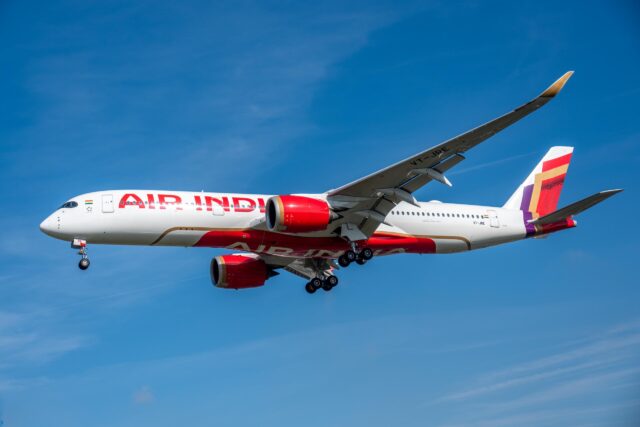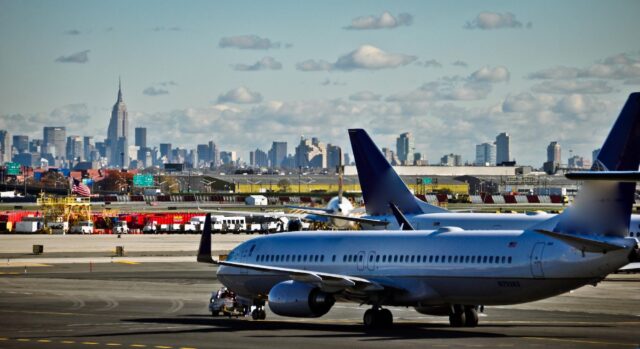Air France-KLM trials EU Flight Emissions Label to give passengers clearer climate impact data

July 15, 2025

In a push for climate accountability, Air France-KLM has become the first airline group to adopt the European Union’s new Flight Emissions Label (FEL), developed in partnership with the European Commission and EASA.
The label, aimed at standardising emissions data for passengers, marks a significant step toward transparent, climate-conscious air travel across the EU.
Under a Memorandum of Cooperation (MoC) signed with EASA, Air France and KLM will now begin testing and implementing the fully digital FEL platform.
The tool aims to offer passengers clear, consistent information on the carbon emissions associated with each flight. This will not only empower consumers to make more sustainable travel choices but also encourage airlines to adopt more environmentally responsible practices.

The partnership is seen as the first concrete manifestation of Regulation (EU) 2024/3170, adopted in December 2024, which formally established the voluntary environmental labelling scheme.
The FEL is part of a broader EU strategy that includes the ReFuelEU Aviation initiative, both of which are designed to accelerate decarbonisation within the aviation sector.
New levels of transparency in airline carbon reporting
Benjamin Smith, CEO of Air France-KLM, describes the agreement as a critical milestone in the group’s climate strategy.
“Our early and active participation is designed to help shape a fair, transparent, and effective framework for all airlines.” he says. “This initiative is a critical component of our broader strategy to lead the decarbonisation of our industry.”
Air France-KLM will now work closely with EASA’s digital experts to test the FEL platform’s end-to-end workflow-from submitting flight-level data to receiving emissions label outputs.

This includes reporting real-time metrics such as fuel consumption, sustainable fuel (SAF) use, passenger load, cargo carried, and time spent airborne.
In return, the airline group will gain early access to the FEL’s reporting methodology and its underlying calculation framework, giving it a competitive edge and positioning it as a frontrunner in sustainable aviation.
What the Flight Emissions Label hopes to achieve
The introduction of the FEL arrives at a moment of increasing climate pressure.
Aviation accounts for around 3% of global carbon emissions, and that figure is expected to grow without intervention. For decades, carbon offset schemes and voluntary emissions calculators have existed, but these have often lacked uniformity and credibility.
The new labelling framework will change that. By standardising emissions data and display formats, the FEL gives consumers trustworthy, comparable information. Only airlines enrolled in the scheme will be permitted to publicly display emissions labels to EU passengers.

Apostolos Tzitzikostas, Commissioner for Sustainable Transport and Tourism, welcoming the partnership, says: “This decisive step turns Air France and KLM’s commitment to decarbonisation into concrete action.
“It reinforces fair competition, transparency, and trust. I encourage other airlines to join this initiative, driving a more sustainable and transparent future for European aviation.”
What can passengers expect from the Flight Emissions Label?
Once fully operational, the FEL will allow passengers booking with participating airlines to see a breakdown of their flight’s emissions performance.
Likened to food nutrition labels or appliance energy ratings, the scheme will generate a standardised, easily understood visual guide to the climate impact of a flight.

Air France-KLM is expected to begin displaying this data publicly in the coming months, subject to the completion of the trial phase.
The scheme is open to both EU and non-EU carriers operating flights in the region, provided they fall under the scope of Regulation (EU) 2023/2405 (ReFuelEU Aviation).
While the programme is voluntary for now, there is a potential that the FEL could become mandatory in future.
With mounting regulatory and consumer demand for greener operations, FEL may emerge as a global benchmark, especially as regions like Asia and North America evaluate similar frameworks to drive aviation decarbonisation.
















